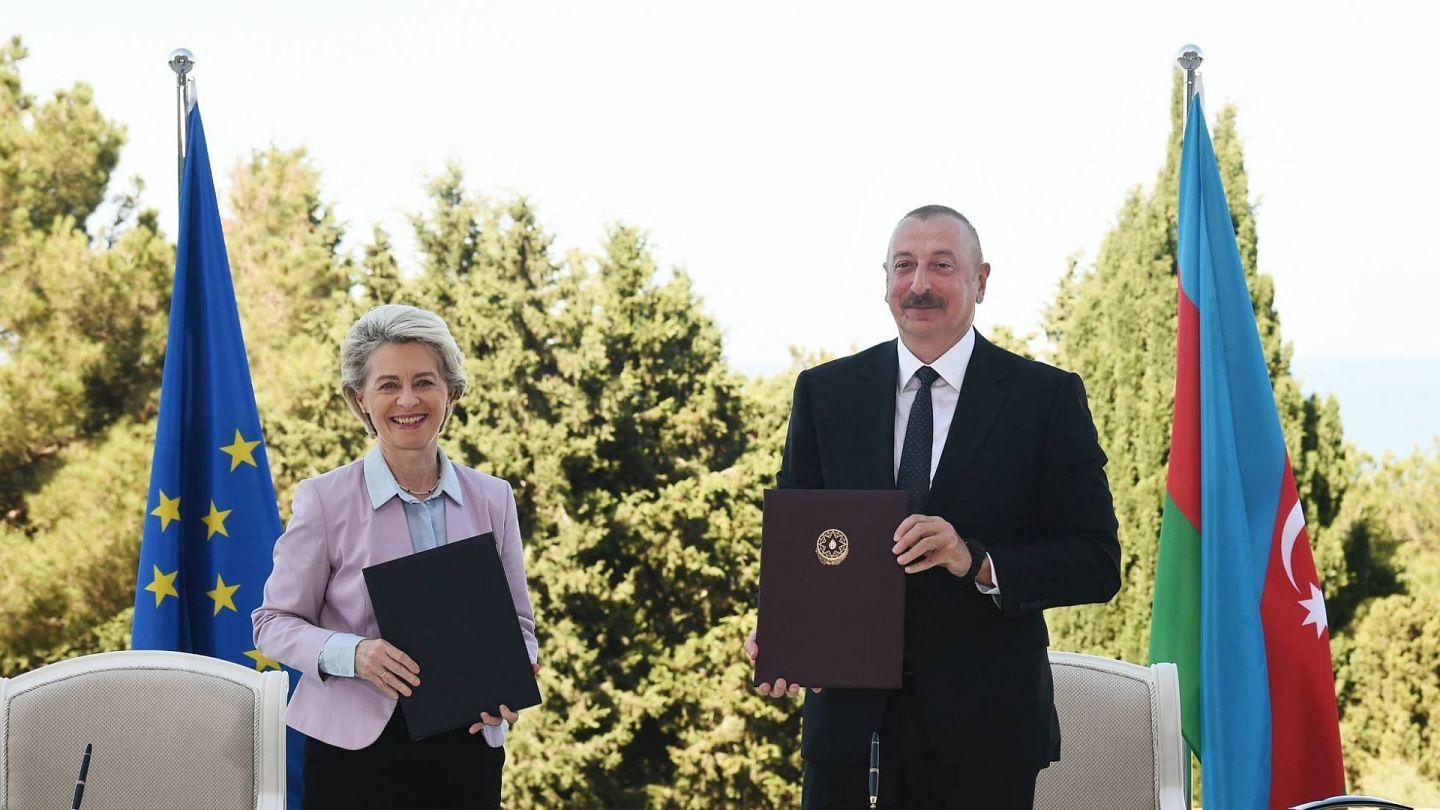In an interview with the website of the Strategic Council on Foreign Relations, Narsi Ghorban referred to the announcement of the decision of the Republic of Azerbaijan to double the amount of gas exports to Europe by 2027 and noted: The Republic of Azerbaijan cannot in any way replace Russia in supplying gas to Europe, for the reason that the country does not have gas resources and reserves, as it is discussed in the media. The method of transmission and the gas pipelines also do not allow Baku to transmit gas to Europe at such volume.
Saying that the Republic of Azerbaijan is not able to produce that amount of gas in terms of infrastructure, he added: The gas reserves of the Republic of Azerbaijan are about 2.5 trillion cubic meters; this amount of gas reserves is one fifteenth of Russia’s gas reserves. In addition, the production of the Republic of Azerbaijan is 31.8 billion cubic meters, and this amount of production is estimated to be half of the production of Russia. It should be kept in mind that out of the 31.8 billion cubic meters of the produced gas, Baku allocates about 12.7 billion cubic meters to its domestic consumption and there remains only about 19 billion cubic meters of surplus gas.
Referring to the request of some European countries from the European Commission to allocate funds for the development of infrastructure to increase gas shipments from Baku to the European Union, the energy economy expert said: Before the start of the war in Ukraine, Europe was importing about 167 billion cubic meters of gas from Russia, and Baku cannot cover half or a third of this figure in the near future. Baku may be able to add some amount to the volume of its export gas, but this amount is very limited.
Emphasizing the necessity of considering the limitations in the transmission lines, Ghorban continued: Baku can only export gas through Georgia and Turkey; or turning it into liquefied gas, which also takes about six years to be completed. All other roads are closed to Baku.
Emphasizing that if Europe wants to abandon Russia, Moscow has many ways to put pressure on Europe, he explained: Russia has influence on Baku, and this influence is also applied to the routes through which it is possible to transfer gas, and it will create many challenges. Therefore, Europe cannot count on Baku’s gas, because in any case, this region is directly and indirectly under the influence of Russia. In this situation, it is not possible to imagine a long-term perspective for the security of energy transfer to Europe.
The international economy analyst stated that if Baku has some surplus gas, it will definitely export it, adding: No attention can be paid to exaggerated assessments. Without Turkmenistan’s gas, Baku cannot fulfill the European Union’s expectations for increasing gas supply instead of Russian gas, even in the short term. If Baku can prepare the gas transfer to Europe under ideal conditions; in the coming years it may be able to compensate for about 10 percent of the gas that Europe supplied from Russia.
Referring to the media and political space-making by Europe and Baku regarding the country’s gas reserves, Ghorban noted: Considering the issues of the Caucasus region and the efforts we are witnessing being made by foreign players to increase their presence and role playing in it, Baku is trying to demonstrate itself as an important and decisive player and strategically display the region and other countries being dependent on them. To some extent, this issue can be a win for that country; but it should be kept in mind that from the point of view of independent experts, it is clear that this issue is propaganda, and it is not possible to proceed with such propaganda in practice.
The expert on energy economy, commenting on the economic consequences and developments in the field of energy lines in the region after the export of Baku gas to Europe, emphasized: If Europe wants to replace Russian gas, it is not wise to import gas from the area under Russian influence.
Referring to Baku’s decision to double the gas delivery to Europe, Ghorban reminded: If Baku exports about 15 billion cubic meters and can increase this amount to 30 billion cubic meters in the next four years, this figure is far from the 167 billion (cubic meters) that Russia used to export to Europe. Therefore, it is surprising that the issue of Baku gas is being publicized to such an extent.
He stated that Baku is trying to increase the cost of Russia’s direct and indirect opposition to the transfer of gas to Europe by space-making, adding: Russia will prevent Baku’s gas transfer as much as it can.










0 Comments